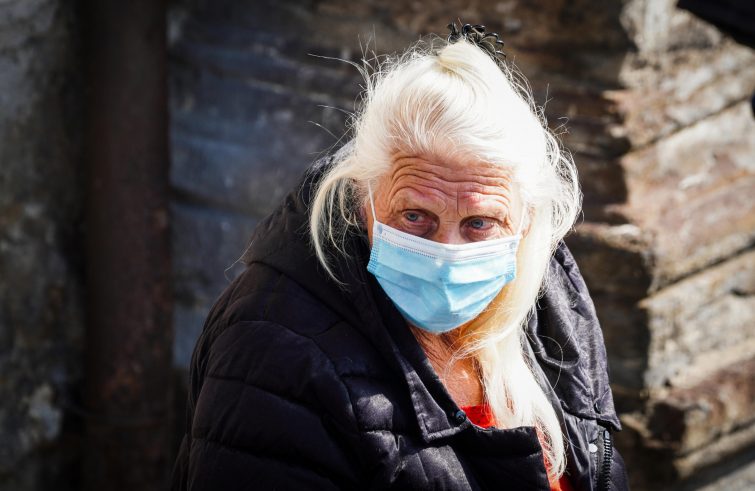
The UK moves on to “Step 2” today, May 11, announced by Prime Minister Boris Johnson. British media summarized: from “stay at home” to ” stay alert.” The new phase worries Phil McCarthy: “I hope there will be the good sense to manage the pandemic without unnecessary risks,” said the CEO of “Caritas Social Action Network” ( CSAN), an agency of the Catholic Bishops’ Conference of England and Wales for domestic social action, which brings together 48 member organizations assisting vulnerable children and adults, the elderly, the homeless, the disabled, asylum seekers and HIV-positive. “I welcome the removal of some of the restrictions because it is important to restart the economy, although health must still be protected.”
 Increasing requests for help. In the face of escalating poverty caused by the virus – food banks in Britain recorded a 60% increase in demand for emergency food support between February and March, seventeen times more than during the same period last year – Phil McCarty and his organization found themselves under pressure as demand intensified. In a country like the UK, where the welfare state underwent cuts in the years of austerity, Caritas volunteers often carry out duties once performed by social workers. Philip McCarty and his six-person team, having learned how to use Zoom, started a collaboration with the Saint Vincent de Paul Society and drew up a document for responding to the emergency.
Increasing requests for help. In the face of escalating poverty caused by the virus – food banks in Britain recorded a 60% increase in demand for emergency food support between February and March, seventeen times more than during the same period last year – Phil McCarty and his organization found themselves under pressure as demand intensified. In a country like the UK, where the welfare state underwent cuts in the years of austerity, Caritas volunteers often carry out duties once performed by social workers. Philip McCarty and his six-person team, having learned how to use Zoom, started a collaboration with the Saint Vincent de Paul Society and drew up a document for responding to the emergency.
Covid-19 Toolkit. The document titled “Covid-19 Toolkit for Catholic Parishes and Caritas Diocesan Agencies (available by logging on: https://www.csan.org.uk/guidance/covid-19/) “was designed to respond to questions from those who contacted us asking how to behave during this difficult crisis,” said CSAN’s CEO. “If a parish is facing the possibility of isolation of the faithful, we recommend setting up a dedicated hotline for those who are feeling lonely and arranging for groups to meet online.“ The document covers a number of concrete situations. For example, what to do when you receive groceries at home while being in isolation and you must avoid contact with the delivery person. “Payment should be made with Debit cards and there is no need to open the door to say thank you”, reads the document. The booklet also explains how to identify the neediest members of a community, along with advice on the most competent organisations for different situations. The Toolkit includes prayer and liturgy support.
 Bishop Drainey: “help charities.” Recalling step one of the coronavirus crisis, Philip Mc Carthy described the many difficulties faced in meeting suddenly increased demand for money and food. Not to mention the nursing homes, several of which are run by organizations connected to the CSAN, which lacked the necessary protective equipment against the virus. Discontinuation of donations usually coming from church offerings, caused by the suspension of Masses, resulted in a drain on resources that was “very hard to make up for.” Equipping employees with the technology they needed to work from home was an additional expense in an already challenging situation. “For this reason, our president, Bishop Terence Drainey, launched an appeal when the crisis broke out, encouraging Catholics to give priority to the poor” and stressing that, at this time, “charities serving communities are facing difficulties, lacking the money from donations.” Even in this health, economic and social emergency, the poor cannot wait.
Bishop Drainey: “help charities.” Recalling step one of the coronavirus crisis, Philip Mc Carthy described the many difficulties faced in meeting suddenly increased demand for money and food. Not to mention the nursing homes, several of which are run by organizations connected to the CSAN, which lacked the necessary protective equipment against the virus. Discontinuation of donations usually coming from church offerings, caused by the suspension of Masses, resulted in a drain on resources that was “very hard to make up for.” Equipping employees with the technology they needed to work from home was an additional expense in an already challenging situation. “For this reason, our president, Bishop Terence Drainey, launched an appeal when the crisis broke out, encouraging Catholics to give priority to the poor” and stressing that, at this time, “charities serving communities are facing difficulties, lacking the money from donations.” Even in this health, economic and social emergency, the poor cannot wait.











